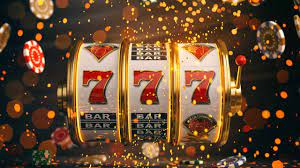Casinos have long been centers of excitement and intrigue, places toto togel slot luck, skill, and fortune converge. Whether in the glitzy lights of Las Vegas, the serene allure of Monte Carlo, or the bustling atmosphere of Macau, casinos have an undeniable charm that attracts millions of visitors every year. But beyond the roulette wheels and poker tables, there’s a fascinating world of history, psychology, and culture that shapes the casino experience.
A Brief History of Casinos
The roots of modern casinos trace back to ancient times, with gambling appearing in almost every known culture. From the dice games played in Mesopotamia to the lotteries of ancient Rome, the allure of chance has always been a part of human civilization. However, the first true casino, as we understand it today, emerged in Venice, Italy, in the 17th century. The “Casino di Venezia,” built in 1638, is still in operation today, making it one of the oldest establishments in the world.
Over time, casinos spread across Europe and the world, particularly gaining momentum in the 19th century. In the United States, Las Vegas became the epicenter of casino culture in the mid-20th century, with its neon lights and endless rows of slot machines. Today, global hubs for gambling include cities like Monte Carlo, Singapore, and Macau, each with its own unique flair.
The Games: More Than Just Luck
At the heart of every casino lies a diverse array of games, each with its own rules, strategies, and appeal. While many associate casinos with the thrill of chance, such as slots or roulette, there is also a deep strategic element to games like poker and blackjack.
- Roulette: Often considered the epitome of chance, roulette is a game of simplicity but one with vast possibilities. Players bet on where a small ball will land on a spinning wheel, with the numbers and colors corresponding to various betting options. While there’s no skill involved in spinning the wheel, seasoned players use strategies to manage their bets.
- Blackjack: Unlike roulette, blackjack is a game of strategy as much as luck. The goal is to have a hand value as close to 21 as possible without going over, and the player competes against the dealer rather than other players. With the right techniques, such as card counting (though this is discouraged in most casinos), players can gain a statistical advantage.
- Poker: The granddaddy of card games, poker is as much about psychology as it is about the cards you hold. Players bluff, strategize, and read their opponents to emerge victorious. There are countless variations, from Texas Hold’em to Omaha, each requiring a different approach and skill set.
- Slot Machines: The modern slot machine is a symbol of the casino experience. These machines are simple to use, and with a little luck, they can deliver massive jackpots. The evolution of slot machines, from mechanical to digital, has made them a staple in almost every casino worldwide. While many see slots as games of pure chance, they rely on complex algorithms known as Random Number Generators (RNGs), making every spin as unpredictable as the last.
The Psychology of Gambling
Casinos are designed with one goal in mind: to keep players engaged. From the constant sounds of slot machines to the colorful lights and stimulating environments, every detail is carefully planned to entice the gambler. But why do people flock to these venues, even when the odds are stacked against them?
One key factor is the concept of “variable reinforcement.” This is the idea that people are more likely to repeat behaviors when they are rewarded intermittently. In casinos, the occasional big win or even the thrill of almost winning keeps players coming back for more. It’s why players often feel a rush of excitement after hitting a small jackpot or winning a hand of blackjack. The casino’s environment exploits this psychological principle to keep the energy high and the money flowing.
Another aspect of casino psychology is the “near-miss” effect, especially prevalent in slot machines. When a player almost hits a jackpot—only to be one symbol away—it can trigger the brain’s reward system, leading to a sense of excitement and anticipation. Even though the outcome is not a win, the brain reacts as if it were, encouraging continued play.
The Legal and Ethical Side of Casinos
Casinos are tightly regulated environments. In most jurisdictions, they must adhere to strict laws regarding fairness, security, and the protection of patrons. This includes ensuring that games are not rigged, that there are safeguards against problem gambling, and that the establishment is free from criminal influence.
In countries like the United States, casinos are subject to the jurisdiction of gaming commissions, which oversee licensing and regulatory requirements. In regions where gambling is illegal, underground casinos sometimes emerge, operating without the oversight of authorities. These illicit operations can pose risks to gamblers, as they often lack the transparency and consumer protections found in regulated venues.
Problem gambling is also a concern for many casinos, and most major establishments have measures in place to help prevent and address addiction. Many casinos offer self-exclusion programs, where players can voluntarily ban themselves from gambling for a certain period, as well as resources for individuals seeking help with gambling addiction.

